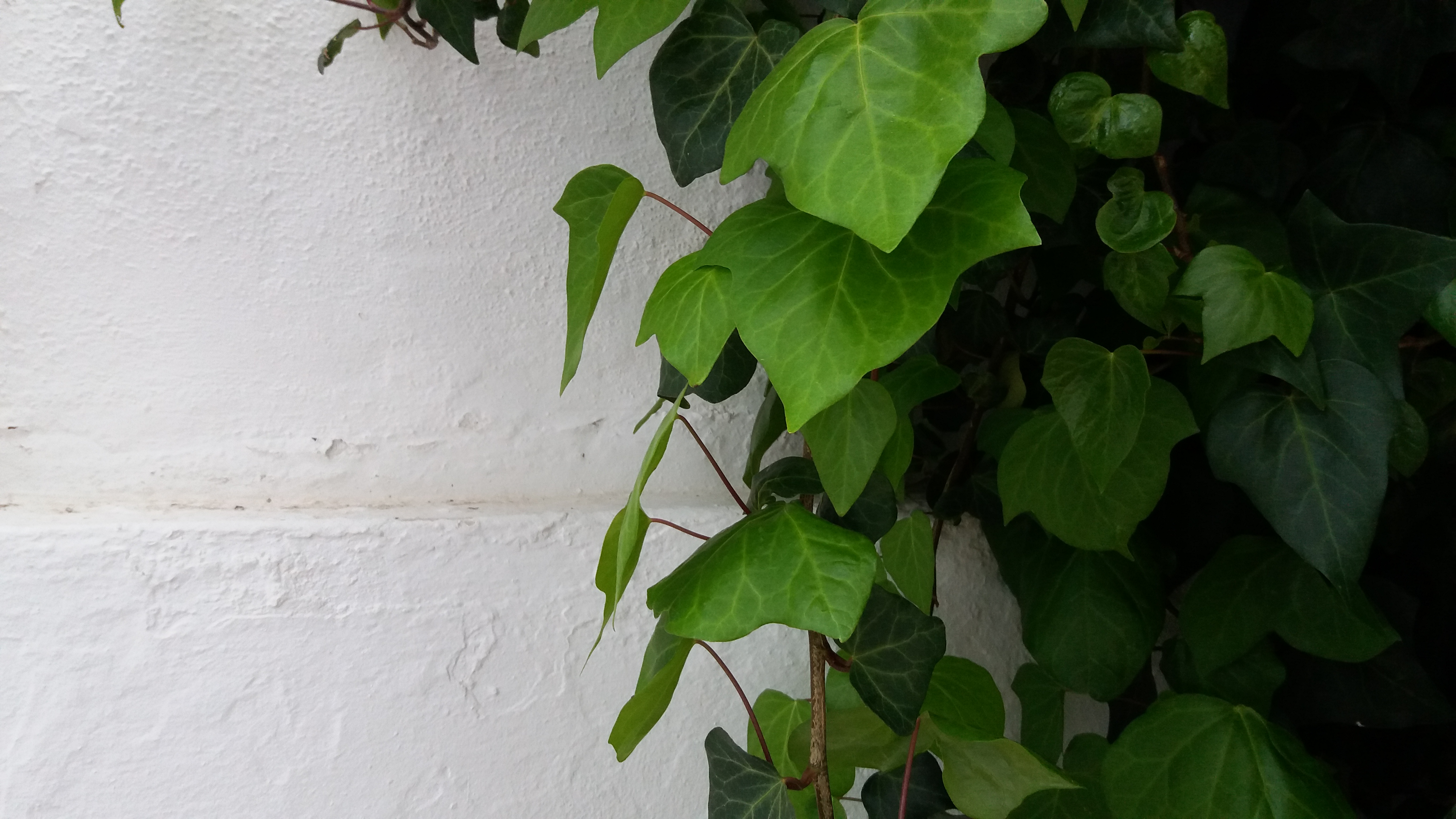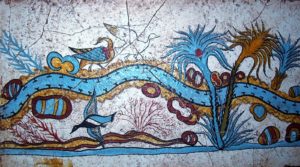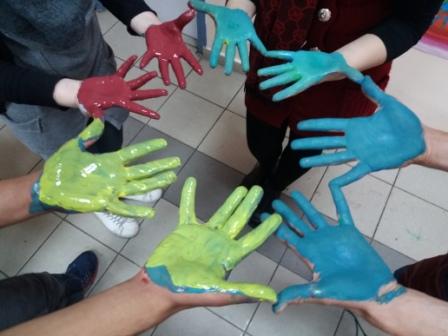The social enterprise Wind of Renewal (Anemos Ananeosis in Greek) is looking for European Solidarity Corps’ participants from Germany, Italy, Belgium, Netherland, Sweden, Norway and Spain interesting in volunteering in Athens for Green and Social Innovation. Please, if you are interesting in participate, send an email and a letter of interest, plus your cv to windofrenewal@gmail.com
Wind of Renewal (Anemos Ananeosis in Greek) aims at promoting, innovating, and defining new forms of social and green practices adopting a sustainable approach (see our web site: https://anemosananeosis.gr/en/main-page-en-2/)
Welcommon Hostel represents our main project, through which we want to combine the social inclusion and job integration of refugees and young people in Athens, considering and raising awareness about energy and green transition (see our website: www.welcommonhostel.gr ). Our project was born as a way of facing the crises that have struck our country such as: rising unemployability, energy poverty, isolation of marginalized groups and criminality in Athens.
On the one side, the main goal of the project is to provide different activities to children in school age, teens, and adult refugees/migrants by adopting a non-formal education approach. We want to improve their soft and hard skills so that they can also contribute to their host communities. On the other side, we want to raise awareness about green economy and related innovative practices, since the lack of knowledge about these issues is connected to social problems like the social exclusion of marginalized groups.
These results can be achieved by creating a strong multicultural network to exchange best practices and by sharing experiences for sustainable solutions. In particular, the volunteers who will join the project will be the main protagonists of its success, and this experience can represent for them an opportunity to work in a multicultural environment with multifaceted needs, increasing their motivation for future engagement in solidarity activities.
What are the project’s long and short-term aims and how do they link to the objectives of the European Solidarity Corps?
Our first short-term aim is to promote social inclusion through non-formal educational activities covering a wide range of topics: environmental education, language lessons (mainly English, German, and Greek), painting, music lessons, theatre, dancing, handcraft by using recycling materials, and cooking lessons. As well, we would like to realize workshops on art therapy, gender issues, energy transition, reuse, recycling, fire prevention, and work on vocational training.Moreover,outdoor activities (e.g. visits to museums or to cultural centres) are strongly encouraged.Our non-formal approach is based on the knowledge that most of the participants are children who live in Camps in Athens and do not attend the formal school system, so this program is the only educational framework they would get.
Our second short-term aim is to provide a deep knowledge about green energy tools and push for their application through an exchange of experiences and good practices from experts, volunteers and refugees. In particular, we want to underline how all the participants in our project, refugees but also volunteers themselves, can exploit this knowledge in a job market that ismore and more oriented towards these topics, raising their employability and increasing their skills and competences for personal, civic and professional development.
Finally, in the long term, we want to gain and share experience and implement practices for societal change and support them through the creation of a strong European multicultural network. This network will create common future goalsin fighting unemployment and poverty. As well, given that the volunteers will work with vulnerable people in a multinational group, this will create empathy and solidarity, raise participants awareness and understanding of other cultures and countries while simultaneously supporting their own professional development.
The context of the volunteering activities we are planning and how these will deliver our identified results and impacts.
There is a range of activities that are already taken place at our Project. In particular, we focus on two main branches as described below:
A1: Non-Formal Education:
Language lessons, including English, German, Greek, but also other psycho-social activities, art, music, theater, photography for vulnerable groups will be based on the support given by supportive offices andsocial workers’ network we are in contact with. Besides, volunteers with experience in the educational/pedagogical field are always welcomed to share new methods and ideas in the following working field: mentoring, evaluation, job integration, consultation ofparticipants and volunteers, communication with children’s parents, creation and development of new projects on female empowerment or vocational training.
The aim of this activity is the empowering and the capacity-building of the participants. In order for this to happen, opportunities such as language lessons, art, music, theater, photography, upgrading and practicing existing or new skills in upcycling or crafts, are used as a motivation for children to prepare them to attend the national formal educational system or to help the children that already attend it. As well, we want to create the ground for adults’ access to the labour market.
A2: Environmental education and Energy transition:
We want to focus on environmental education and energy transition by combining the work of professionals on green and social innovation (we are currently working on two projects related to this, YESClima and Climate Schools Be.At, both financed by the EU Climate Initiative (EUKI) of the German Federal Ministry for Environment) with the enthusiasm, experience and fresh ideas of refugees and volunteers.
The latter, indeed, can share good examples and ideas related to energy saving and social innovative methods, practices for empowerment of refugees and social inclusion in our hosting societies. The final aim is to reduce economic/social disparities caused by unemployment and energy poverty through the empowerment of marginalized citizens by raising awareness about the potential of this field and the related green job opportunities.
Topics addressed by our project
- Empowerment and social inclusion
- Non-formal education and training
- Climate action, environment and nature protection
- Green transition, energy efficiency, green innovation
- Co-existence, respect, collaboration
- Inclusion
The volunteers will organise seminars, workshops and activities on social and green ivvovation topics, open to all: locals, volunteers, migrants, refugees, tourists, students.
The profile, background and needs of the volunteers involved and how they havebeen or will be selected
Participants to the project will be young people aged from 18 to 30 years old willing to express their personal commitment through voluntary service in another country within European Union.
Based on the planned activities, a volunteer will be allocated in particular activity based on the age, the experience and the interest he/she has for each one of the activities. The final selection will be in cooperation with the sending organisation and the volunteer. Furthermore, due to the multicultural and multilingual background we seek to admit applicants from both genders for every needed activity. We want all the participants to have equal rights, regardless of gender or cultural background and we will ensure equal chances to each participant. Factors like, experience, academic background and motivation will be taken into consideration for the choice of the participants.
For all participants we will ensure equal selection, confidentiality and no discrimination. The participants will be selected by reviewing the applications for the position and the cover letter from the volunteers who are interested in to participating. For volunteers with fewer opportunities or knowledge of the concept of the selected activity, relative training will be provided them before the beginning of the activity from the support of other participants and the staff of Wind of Renewal/AnemosAnameosis.
Α1 Non formal Education:
With regards to activity A1, participants should have experience in the field of education and teaching. It is very crucial for the volunteers to consider the needs and difficulties but also the challenges that will might face when teaching people from other countries. Furthermore, it is worth to be mentioned, that it is important to have people with different cultural background so that the teaching experience becomes more multicultural. Similar to teaching experience, for the implementation of the psychosocial activities, the participants need to be trained and conscious about social issues, and to use methodologies that will empower and contribute to the social inclusion of traumatised and vulnerable groups. We would prefer volunteers that have relevant studies in fields such as occupational therapy, speech therapy, psychologists, pedagogues, social workers but also people that have worked in similar institutions and have experience in working with children and/or multicultural groups.
A2 Environmental education and Energy Transition:
The purpose of this activity is for specialized volunteers in environmental studies, to make the participants of Welcommon and local community aware of the importance of the environment protection as the concept and the relevance of recycling. Moreover, to inform them about green energy or possible ideas of job integration in the green jobssector. Electric engineers, chemical engineers, and researchers on the field of energy transition, renewable energy resources, energy poverty and recycling are areas of action and education that the participants for this activity should have in order to be able to have the desirable outcomes.
Measures put in place to embed a quality learning process from the start of the project and support the volunteers in defining and meeting their learning objectives, organising their reflection, identification and documentation of the non-formal and informal learning outcomes acquired.Please remember to include the methods that support reflection and documentation of the learning outcomes in the daily timetable of each activity.
We will encourage our volunteers to send us their Europass Curriculum Vitae (CV) and Language Passport. In case they do not have it, we are willing to support them with the advice and systematically support of the volunteers coordinator and mentor.
All participants of the project approved within these frameworks are entitled to receive a Youthpass certificate, and thus recognition for their non-formal learning outcomes. It is important to participants’ employability, but also to our evaluation and for documenting and recognising learning outcomes of our European Solidarity Corps Program. The responsibility to issue the Youthpass certificates to the participants/volunteers, in case they wish to receive them, is on our organisation. Besides, a system for sharing tasks and responsibilities it has already been developed and it is described in the Regulation of Volunteers, that must be signed both by the representatives of Wind of Renewal and by the volunteers.
All the participants are provided with initial training and introduction from our volunteer coordinator. Together, they will organise their personal timetable and do any necessary adjustments. There will be continuous feedback and communication as described below and a final evaluation. On a weekly basis, meetings will be held to reflect on each activity’s group member. In addition, in the daily timetable of each activity that will be uploaded (google docs), there will be a folder for documenting the learning outcomes for the better coordination and follow-up of the teachers/ volunteers. Volunteers will have the possibility of sharing their everyday experience through a FB page created by and for them. Furthermore, there will be a special space on our website, only for European Solidarity Corps Volunteers that we will promote the actions of the Project.
We encourage the volunteers to carry out the online language course and assessments provided by the Commission but also to participate in tutoring and language lessons offered in Wind of Renewal/Anemos Anameosis. We also suggest them to carry out a self-reflection on the learning outcomes of the EVS activity (through the use of Youthpass).
The general manager and the volunteer coordinator are in charge of all the issues regarding the internal administration of Wind of Renewal/Anemos Anameosis, sharing of responsibilities and tasks between the personnel, the volunteers, the refugees, the locals and the guests/travelers hosted by Wind of Renewal/AnemosAnameosis as well as the communication with external stakeholders and partners.
Learning outcomes (i.e. knowledge, skills, attitudes, behaviours) to be acquired/improved by participants in each project activity
Each planned activity of the project will focus on different skills and attitudes of the volunteers. Apart from the practical outcomes, the aim is to establish a community building using social and green innovation. Locals, Refugees, Immigrants, Volunteers from Europe will work together combining their knowledge and various experiences. Eventually, the learning outcomes will be different according to the activity in which the participants will be involved in.
A1 Non-formal Education: Non-formal education consists one of the basic group activities that Wind of Renewal/Anemos Anameosis offers.
- As a learning outcome of language classes, participants will gain experience in teaching to multilingual/multicultural groups and also, they will develop the ability to find alternative ways of communication given the possible difficulties that might be raised.
- With regards to psycho-social activities, participants will gain the experience of 1-1 mentorship and will have the opportunity to create closer relationship with refugee children and adults.
- Amongst the competences they will develop there is the participants’ capacity to use creative and innovative ideas and methods to a demanding and complex environment. Participants will gain substantial knowledge through this experience.
- While the target group for this activity is multicultural and multinational, participants need to act differently referring not only to the psychological and social issues but also according to people’s different backgrounds.
- Responsibility will be strongly acquired as long as good sense of teamwork.
- During each activity participants will have the opportunity to improve their knowledge through practice, always in respect of human rights.
- Volunteers will need to be organised, structured and self-sufficient in order to follow the institution’s daily activities.
A2 Environmental education and Energy Transition: Participants of that activity will pass their knowledge on environmental topics, such as energy poverty and energy transition to a group of young people and refugees so for them to experience, understand and also exchange knowledge about environmental policies in other European countries.
- Adaptability and creativity are needed.
- The role of the volunteer will be to conduct research, collect and analyse data as well as to draft reports.
- The participants in this activity will have the opportunity to get and exchange experience on topics such as energy transition and energy poverty by providing case studies from their countries of origin or other examples.
- At the same time will be responsible to get further understanding about this topic and how is being implemented in Greece.
- During each activity participants will have the opportunity to gain experience by working in a multicultural environment as well as to improve their knowledge through practice always in respect of human rights.
- Volunteers need to be organised, structured and self-sufficient in order to follow the organisations’ daily activities.
- Competences such as organizability, flexibility, creativity, determination, stability, respect for human rights, sense of giving, interest in refugee’s issues, love for children, dynamism are basic principles for the implementation of every activity.
Our project will make use of
- Youthpass Certificate
- Europass Curriculum Vitae (CV)
- Europass Language Passport
Number of volunteers
A1 Non-formal Education Individual Volunteering 12
A2 Environmental Education and Energy Transition 9
Activity Description – A detailed description of the activity
Non-Formal Education Program at Welcommon:
From Monday to Friday afternoon (from 14 until 18 o’clock), there is a kids-program for non-formal education at Welcommon where refugee/migrant children in school age (6 – 15 years) are able to do not only their homework but also different creative activities (max 10-15 children). The Volunteers will be providing an intercultural program covering, for example, painting, music, theatre, dancing, gardening, and handcrafts by using recycling materials.
The program must also includes Maths /Greek/ English lessons to prepare the children for the school.
These activities take place on the first and second floor of the facility. As well, we will organize regularly outdoor activities around the neighbourhood but also educational day trips (like museum, cultural centres, etc.). We are planning to find again a framework for the kids to be allowed to play in the afternoons at the schoolyard of the primary school close to the Hostel, so they can have a contact with the school environment.
For most of the participating children, our program is the only educational framework they get, so the aim is to give to the kids a stable setting and empower the kids through educational games. The volunteer will be first accompanying the activities so as to get to know the program, the participating children and the way of working. Later, they will be able to take over own activities and or create own projects.
Through network with the parents and other adult refugees of the community there is space for additional activities like sewing / upcycling clothes and other educational, creative or gender-based offers for different target groups and aims (for example women empowerment).
The volunteer will also have a interaction/network with local schools and other organisations or projects, will be able to share new methods and ideas and to create new concepts in the following working fields: mentoring, evaluation, job integration, consultation of participants and volunteers, communication with parents of participating children, creation and development of new projects towards female empowerment, vocational training, networking and building cooperation with other organisations (like Melissa, Heal into action, Caritas, …).
Language is the key to integration! We provide language lessons for teens, women and adult refugees and migrants, which want to learn a new language or to improve their language skills, to enhance their community competences and thereby increase their opportunities on the labour market, break isolation, empower themselves and promote their integration in society.
The lessons take place at Welcommon from Monday to Friday in the framework of our non-formal education activities. The main focus at the moment is on English and German lessons (opportunity/capacity for more languages). The lessons are divided into different levels to ensure similar language skills in each class and to achieve better results. The mainly focus of the lessons are on practical issues, learning useful vocabulary for their interactions and communication in daily life. We focus on one subject during each class with specific thematic e.g. ”meet and greet”, supermarket, school” etc. Learning useful vocabulary for their interactions in the country they are going. The material we use are from professional organizations, to ensure the teaching material is up to date. German classes are separated into a beginner and an advanced course.
The English class is separated into beginner or advanced and also in adults or teens, so we can provide a teaching method that is appropriate to their different needs. Also, we have a English class only for women. For new students we will also provide a literacy course twice a week if it is needed.
In Welcommon Hostel, there are specially designed teaching rooms with the capacity up to 25 students at the same time. The lessons are 1-1,5 hour each and every course has 2 or 3 times a week classis.
The courses are not certificated and are based on voluntariness, nevertheless we want our students and teacher to show continuity and stability to ensure a sustainable teaching for the community. We want to welcome everybody in the intercultural courses, they are open to all: volunteers, locals, refugees, migrants, guests/travels. Each person can be at the same time “student” and “teacher”.
The volunteer will participate in our weekly meeting and the weekly reflection/evaluation session. Also, all the volunteers are in daily interaction in person and through a group on social media.
The volunteers write reports about the progresses and used materials, methodologies, visited workshops.
Some of our participants also attend together in extra happenings of our Project like Football, cooking (international evenings), music events, language exchange evenings, board games events, to promote integration.
How many people can we host in our project
A1: Activity: Non-Formal Education
- 5 persons X 60 days (from Germany, Spain, Italy, Belgium, Norway, France, Sweden etc)
- 4 persons X 90 days (from Germany, Spain, Italy, Belgium, Norway, France, Sweden etc)
- 3 persons X 120 days (from Germany, Spain, Italy, Belgium, Norway, France, Sweden etc)
A2. Activity: Environmental education and energy transition
- 5 persons X 60 days (from Germany, Spain, Italy, Belgium, Norway, France, Sweden etc)
- 2 persons X 90 days (from Germany, Spain, Italy, Belgium, Norway, France, Sweden etc)
- 2 persons X 120 days (from Germany, Spain, Italy, Belgium, Norway, France, Sweden etc)






Recent Comments